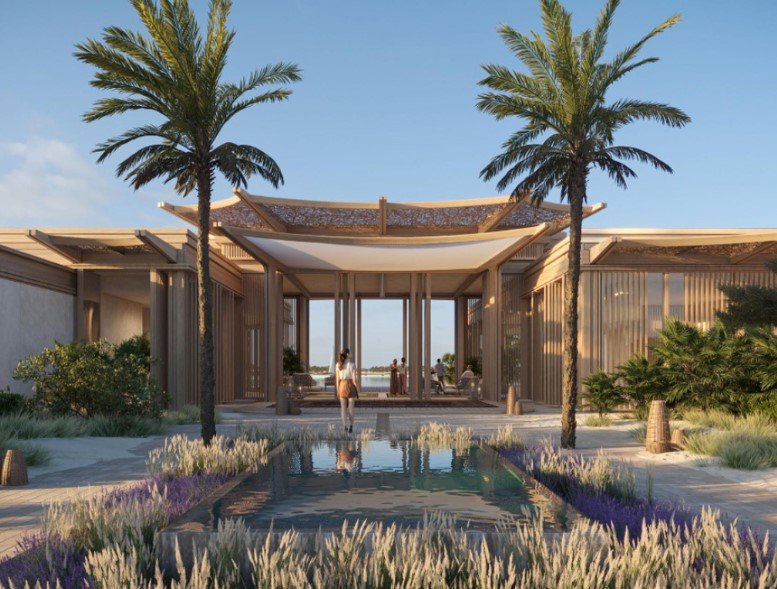Egypt has taken a major step to boost its tourism sector with a new multi-billion-dollar project on the Red Sea coast. On September 7, 2025, real estate giant Emaar Misr signed a partnership deal with Saudi and Emirati firms to develop Marassi Red Sea, a luxury resort expected to attract investments worth 900 billion Egyptian pounds, or about $18.58 billion.
Deal Highlights and Announcement
Prime Minister Mostafa Madbouly attended the signing ceremony in Cairo, where executives from Emaar Misr, Citystars Properties, and other partners unveiled the agreement. This move comes as Egypt pushes for large-scale investments to revive its economy amid ongoing challenges.
The project builds on Emaar’s success with the original Marassi resort on the North Coast, which has drawn millions of visitors. Officials stated that Marassi Red Sea will launch soon and aims to create a world-class destination.
This deal follows other Gulf investments in Egypt, such as the $35 billion UAE-led project for Ras el-Hekma announced in February 2024. That venture focused on a Mediterranean coastal area and promised quick cash inflows to support Egypt’s finances.

Project Features and Scale
Marassi Red Sea spans about 2,426 acres, located roughly 30 minutes from Hurghada Airport for easy access. Developers plan to include luxury hotels, marinas, residential units, and entertainment spots to appeal to global tourists.
Key elements of the project include:
- Twelve high-end hotels to boost hospitality options.
- Floating cabins and waterfront villas for unique stays.
- Commercial areas with shops, restaurants, and leisure facilities.
The resort draws inspiration from successful models like Dubai’s luxury developments, aiming to position Egypt’s Red Sea as a top rival to destinations in the Maldives or the Caribbean.
Planners expect construction to start soon, with the first phase possibly ready by 2029. This timeline aligns with Egypt’s goal to increase tourism revenue, which reached $13.6 billion in 2024 despite regional tensions.
Economic Impact on Egypt
Egypt’s economy has faced hurdles from a financial crisis and the Gaza conflict’s effects since 2023. This project could generate annual revenues between $100 million and $200 million from tourism activities alone.
It also promises to create 150,000 to 170,000 jobs, helping reduce unemployment rates that hovered around 7 percent in mid-2025. These roles will span construction, hospitality, and services, providing a lift to local communities.
Beyond direct benefits, the development supports Egypt’s broader strategy to attract foreign direct investment. Recent data shows FDI inflows rose by 12 percent in the first half of 2025, driven by similar Gulf partnerships.
| Economic Benefits | Projected Figures |
|---|---|
| Total Investment | 900 billion EGP ($18.58 billion) |
| Annual Tourism Revenue | $100-200 million |
| Job Creation | 150,000-170,000 |
| Timeline for First Revenues | By 2029 |
This table outlines the main economic projections based on official statements.
Involved Partners and Their Roles
Emaar Misr, a subsidiary of Dubai’s Emaar Properties, leads the project with its expertise in large-scale developments. The firm owns a stake in Sky Tower for Real Estate Development, one of the key entities involved.
Saudi Arabia’s City Stars, through its Golden Coast arm, brings experience in retail and hospitality. Emirati partners add financial muscle and international know-how.
Hassan el Sharbatly, vice president of City Stars, highlighted the project’s potential during the announcement. He noted that revenues will come from tourist spending, property sales, and ongoing operations.
This collaboration reflects growing ties between Egypt and Gulf nations, which have invested over $50 billion in Egyptian projects since 2023.
Challenges and Future Outlook
While promising, the project faces risks from regional instability, including Red Sea shipping disruptions caused by conflicts since late 2023. Developers plan to mitigate this with strong security measures and marketing campaigns.
Environmental concerns also arise, as the Red Sea hosts fragile coral reefs. Officials assure that sustainable practices will protect the ecosystem, drawing lessons from past projects.
Looking ahead, Marassi Red Sea could help Egypt reach its target of 30 million tourists by 2028, up from 14.9 million in 2024. If successful, it might inspire more investments in underserved areas.
Experts predict this could stabilize the Egyptian pound, which strengthened slightly to about 48.43 per dollar in September 2025 after earlier volatility.
What do you think about this massive tourism push in Egypt? Share your thoughts in the comments and spread the word to keep the conversation going.
